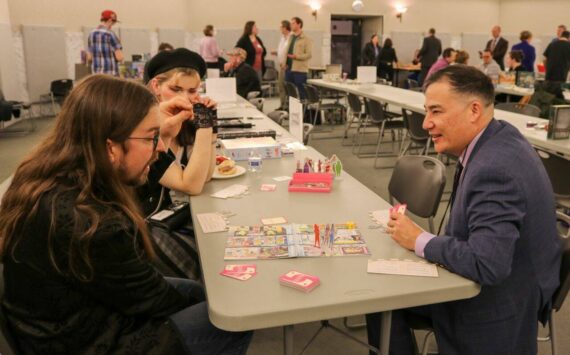The Tacoma City Council is expected to vote July 12 on a resolution that would place an affordable housing levy before voters later this year, according to a discussion during the councils study session yesterday. If the council approves the resolution, and the levy is approved by voters this fall, $2.5 million raised annually for six years would go toward affordable housing in Tacoma.
In order to put the resolution before the council, however, city leaders must declare that an affordable housing crisis exists in Tacoma. Its a statement thats easy to make, according to several advocates for low-income and affordable housing in the region.
Im convinced we have a problem and that the affordability gap is real, said Mike Burlingame, a board member at the United Way of Pierce County, which has been a catalyst in creating the Tacoma/Pierce County Affordable Housing Consortium (TPCAHC). Formed in 2003, TPCAHC works to expand opportunities to produce, finance, and manage affordable housing in Tacoma and Pierce County.
We are asking for support in the crucial next steps for the citys future, said Mark Hubert, a principal with Capital Community Developers, and an advocate for affordable housing. Hubert told the council that the levy would create rental and homeownership opportunities for families of modest means.
According to TPCAHC, 35,000 of the 76,125 households in Tacoma earn less than 80-percent of the median income for the Tacoma area, 12,000 renter households pay more than 35-percent of their income on housing, and more than 400 households are presently on the waiting list of the Tacoma Housing Authority, a service organization that provides affordable, quality public housing to low- and moderate-income people.
Additionally, Burlingame told the council that since 2000, the cost of a home in Tacoma has increased 35-percent, while income levels have only increased 7.4-percent.
Nora Staffen, a manager with Habitat for Humanity, forecasted that by 2012, a Tacoma resident would have to earn $21.73 per hour to afford a two-bedroom apartment at market rates. Additionally, Staffen reported, the median price of a home in the city would be $358,000 by 2012. In order to reach target populations, Staffen told the council, other models of development are necessary. If the levy is not passed, affordable housing in Tacoma will decline.
If passed by voters on Nov. 8, the levy would raise taxes 18 cents per $1,000 assessed valuation — costing the average homeowner $30 per year. That money would be leveraged with state, federal, and private investment to create approximately 740 affordable units over the six-year period. One-third of those units would be available for purchase, and two-thirds would be available for lease.
Historically, the city has received $3 million annually in federal funds to support affordable housing. However, Tacoma faces a five-percent cut in federal funds, and a 50-percent cut is proposed by Congress next year. With current and proposed cuts in federal funding for affordable housing, advocates say it’s time to ask voters for assistance.
Council support for placing the levy on the ballot was mixed during Tuesdays meeting.
Deputy Mayor Connie Ladenburg expressed concern that two-thirds of the levy dollars were aimed at rental units and not home-ownership. She argued that home-ownership typically adds stability to communities.
Hubert explained that creating rental housing was a quick and cost-effective way to meet the needs of affordable housing. Two-thirds rental is rational in order to create the most housing and optimize the use of dollars, he said.
Sandy Burgess of the Metropolitan Development Council, a non-profit organization that helps homeless and low-income individuals with job placement and housing, reported that many people who cant afford homes are losing their apartments as more rental units are converted into condominiums. Were trying to maintain some stake in the market for low-income renters, she said.
The strongest support for a levy came from Councilwoman Julie Anderson.
For nearly 10 years, the county has made a good case for the need for affordable housing, said Anderson. The moment in time as come to get this on the ballot this year. Im very pleased this community group rose to the challenge. I look forward to voting to put this on the ballot.
Referring to her desire to see the levy passed by voters in November, Burgess said, Weve been at this for 10 years. We only want to be at it for another four months.







